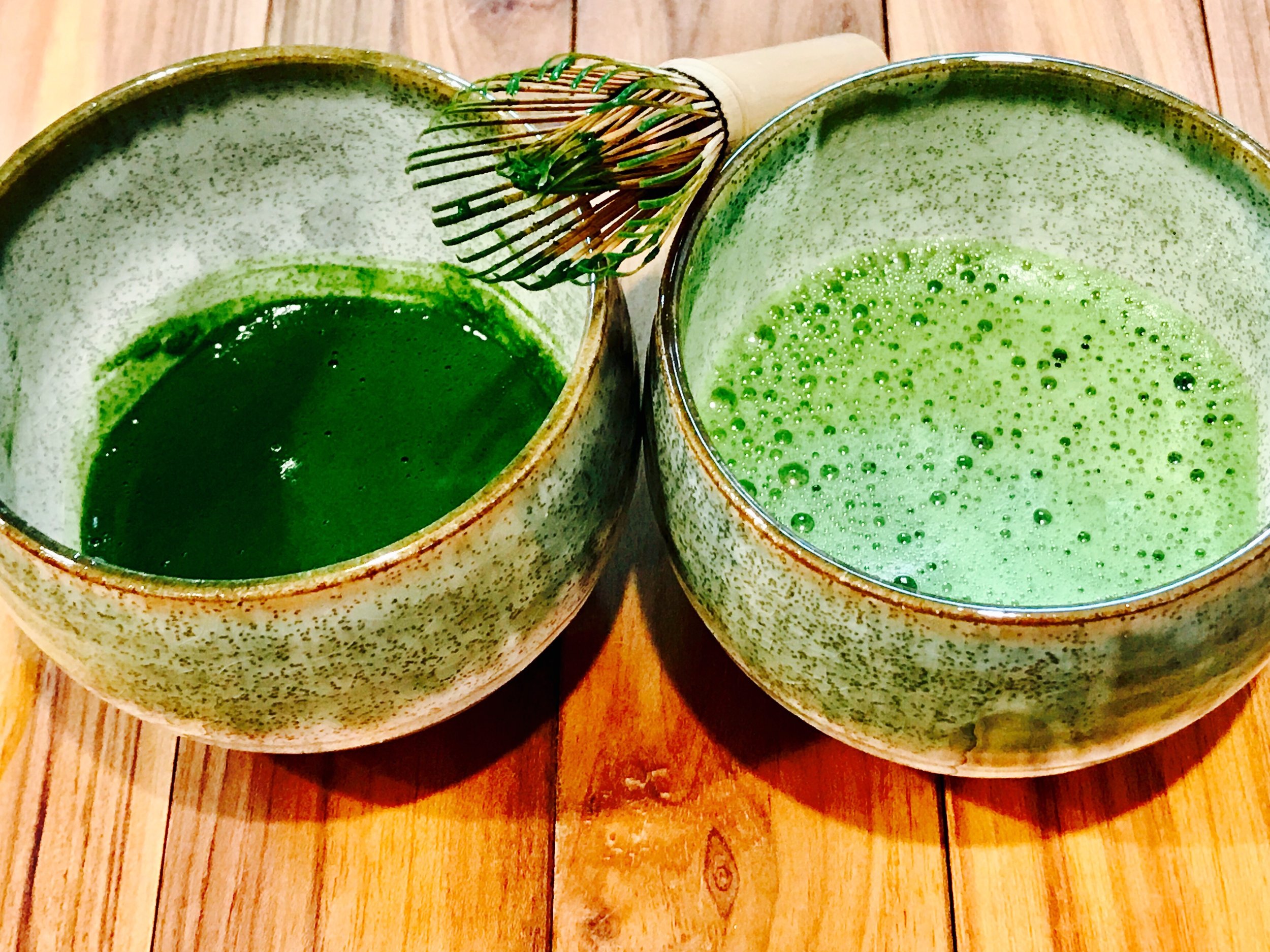Mei-Leaf Matcha
How could I not be enticed by the label of this new matcha from Mei-Leaf in London, England? Made from a family of revered, traditional matcha makers? Only small batches made? And to top it off, it is organic, radiation-tested, stone ground under 10 microns, and ceremonial? Who could ask for anything more? Not I!
This particular cultivar, grown at an elevation of around 50 meters, comes from the city of Uji, in the Kyoto prefecture in Japan. Picked before the 15th of May, these spring leaves are shaded for over a month, with multiple covers to block out almost all the sunlight prior to being harvested. A granite mill is used to ground the leaves to a fine, delicate powder.
When I opened the package my eyes were delighted by the gorgeous, vibrant green color so alive and electrifying. The smell, so extremely fresh and bright, lightened my senses and cleared my head. The matcha was shipped inside a beautiful tin, inside of which it was stored in a plastic bag that was easy to open, allowing for effortless transfer into the tin. Most matchas are vacuumed sealed for freshness, which may be better for longevity, yet opening them tends to result in plumes of green powder being lost into the air or trapped inside the folds of the package. Yes, I admit, I all to often lick the inside of the bag so as to not waste a precious molecule of matcha.
When tasting a new supply I prepare both a koicha and an usucha to learn the full extent of its flavor profile. For the usucha I used about 2.5 oz of water to 2 scoops of my chasaku, while for the koicha, I measured 1.0 oz of water into my chawan filled with 4 scoops of matcha. This powder was so fine that sifting seemed unnecessary since moved through with the slightest push of the back of the chasaku. This matcha whisked quickly and gently using one of my favorite, yet smaller, chasen designed for another of my UK favorites, the Matchaeologist.
The koicha had a deep rich green with a thick consistency of melted chocolate, while the usucha was an avocado bright green color with a foam-like, frothy crema. I detected no bitterness, especially with the koicha (a benefit of such a preparation in general), and the texture of each was unbelievably smooth. What I love most about this cultivar was its flavor; this was umami at its finest, and the finish lasted for several minutes, which was utterly delightful and delicious.
I have to remind myself this is an organic preparation since nearly every other organic matcha I have tried was either less vibrant in color, smelled slightly stale, was slightly to intensely bitter, or was less smooth and silky. This one had none of those qualities.
My spirits were lighter and more buoyant as I sat down to meditate. This was definitely one of my favorite meditative matcha experiences.
Thank you, Mei Leaf!
I probably should taste the other teas from my latest order - gyokuro!


